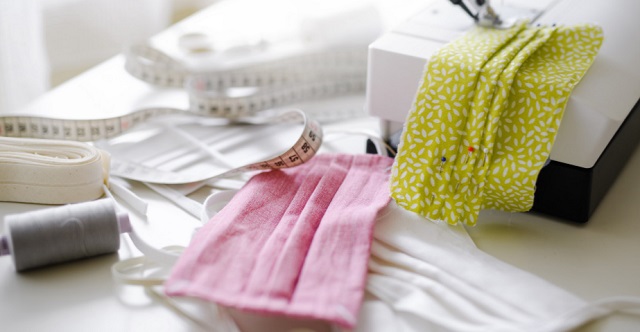
Kampala, Uganda | THE INDEPENDENT | As government enforces the compulsory wearing of masks in public to prevent the spread of Covid-19, there is an ongoing debate on the quality of masks that can protect the user from infection.
Currently, the market is awash with different kinds of masks produced from a range of materials including Kitengi fabric, polypropylene, nylon, polyester. Dr. Stephen Ataro Oyella, an Epidemiologist says a good mask is one that ticks certain features such as breath-ability, ability to block bacteria or other pathogens and size among others.
Ataro, who is also the vice president of the Uganda Medical Association says cotton material is the best fabric for community masks because of its thickness and capacity to absorb the moisture that is released during the breathing process compared to other materials like nylon that easily soak.
Brenda Kitimbo, the Principal Regulatory Officer at the National Drug Authority which is mandated to ensure the quality of medical supplies says they are yet to put in place guidelines for community masks. She told URN that they are working with Uganda National Bureau of Standards to come up with regulations in that aspect.
On Friday, UNBS released part of the standards guiding mask producers with various specifications on material, labeling, packaging and storage for respiratory protective devices, medical and non-medical face masks.
Without documented guidelines yet, Kitimbo says cotton is the best material. Her revelations are in sync with findings of an earlier research by the US based University of Illinois which recommended cotton because of its ability to block sneeze droplets. The research team discovered that adding a second layer of this fabric increases its blocking efficiency to 99.9 percent, which is better than that of a medical mask, which is 96.3 percent.
Speaking on the protective capacity of cloth masks, Dr. Henry Kajambura, an infection prevention expert said the addition of a piece of toilet tissue, coffee filters or polypropylene material can enhance the protective capacity of the cloth masks.
A number of people are not in the know of the qualities to look out for when buying and making face masks. Some are even ignorant of the significance of the masks in protecting them from catching the coronavirus disease. For example; Eddie Mwenye, a boda boda rider at Mutaasa Kafeero says he doesn’t buy a mask to save himself from contracting COVID- but rather to avoid being arrested by police.
******
URN
 The Independent Uganda: You get the Truth we Pay the Price
The Independent Uganda: You get the Truth we Pay the Price


